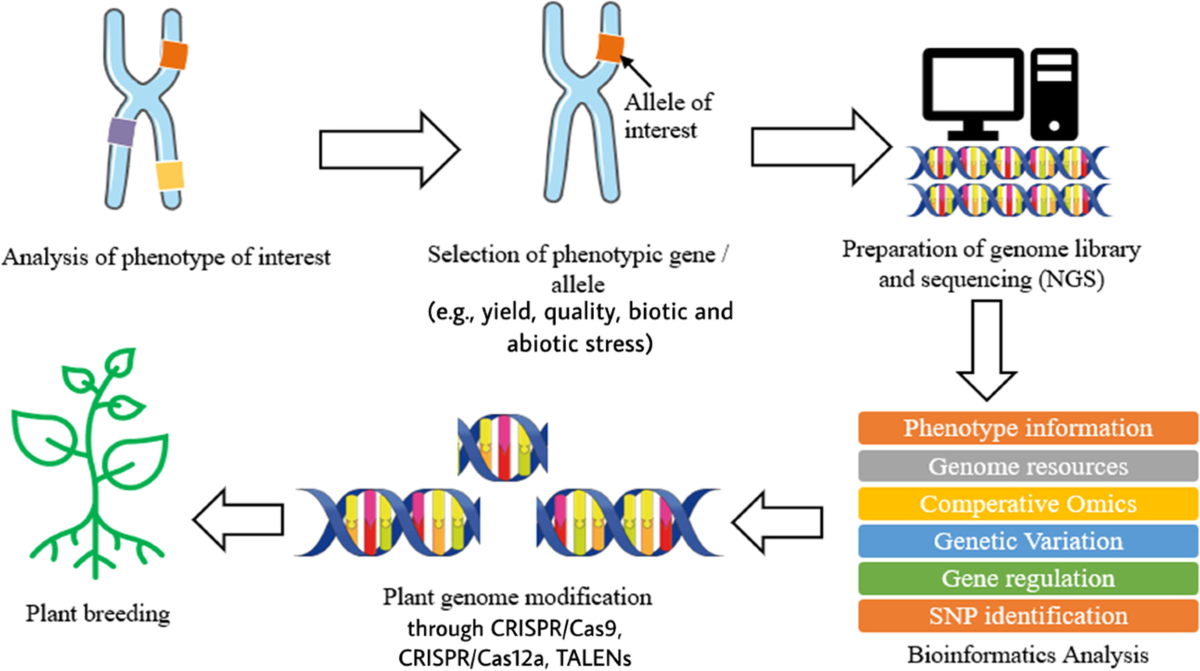10 Easy Facts About Bioinformatics Tutor Shown
10 Easy Facts About Bioinformatics Tutor Shown
Blog Article
Bioinformatics Tutor Things To Know Before You Buy
Table of ContentsThe Of Bioinformatics TutorThe Best Strategy To Use For Bioinformatics TutorTop Guidelines Of Bioinformatics TutorWhat Does Bioinformatics Tutor Do?The Bioinformatics Tutor Statements
Of the total individuals entailed in the training, 80% were trainees from public greater education and learning institutions, while the remaining 20% came from exclusive establishments. To get a certification of involvement, students were required to attend at least 90% of the complete training hours. As a result of this requirement, an impressive 95% of the individuals effectively obtained their certifications, having not only fulfilled the minimum presence requirements but additionally finished all designated activities throughout the training.
Throughout the height of the COVID-19 pandemic, specifically between June and August 2020, the job group was charged with arranging specialized training in bioinformatics. This training was particularly intended at trainees from the research group Core for Research in Applied Computing at the Federal College of Pará (UFRA) The adaptation to remote understanding platforms because of the pandemic produced a chance to discover new mentor methodologies and electronic devices that improved both reach and performance.
This training course was created to offer an accessible yet extensive overview of Artificial Knowledge techniques, specifically as applied in bioinformatics (Bioinformatics Tutor). This online layout allowed participation from pupils across Brazil, many of whom could not have had the chance to participate in in-person sessions.
Not known Incorrect Statements About Bioinformatics Tutor
A notable function of this course was its emphasis on hands-on discovering. Approximately 50% of the total training hours were devoted to sensible tasks where trainees constructed smart designs and applications in a variety of clinical domain names, including genetics, molecular biology, and ecological data analysis. Commonly utilized structures and tools such as Spyder, Google Colab, Jupyter Notebooks, and Orange were integrated into the coursework. These systems made it possible for pupils to engage in real-time data control, version training, and formula trial and error.
The course drew in 80 individuals in overall. Sixty of them were associated with various higher education organizations in the state of Pará, while the staying twenty came from establishments situated in 5 other Brazilian states. This broad geographical depiction highlighted the nationwide rate of interest in bioinformatics and the expanding need for specialized abilities in this field. By introducing Artificial Knowledge in a relevant and sensible context, the campaign served to bridge the gap between concept and real-world application, offering students with a strong foundation for future research or work in the field.
The training effort formed part of a more comprehensive scholastic outreach effort recognized as the Bioinformatics when driving task. This project has, for many years, presented dozens of trainees to the globe of bioinformatics and computational biology. The events held under this umbrella campaign have taken location throughout several areas and years, as summed up in Table 1 (Checklist of events, areas, years, and total numbers of pupils and trainers)
Numerous of these groups, at first brought with each other by their engagement in training events, have considering that gone on to create independent scientific research study in partnership with neighborhood scholastic establishments. The training not just cultivated clinical reasoning within the context of bioinformatics yet additionally triggered collective partnerships that extended past the training setting.
The 8-Minute Rule for Bioinformatics Tutor
The very same team, leaving out IH and RR, also acted as tutors for the functional training modules. Financing for the project was supplied via the grant 88887.200562/ 2018-00 from CAPES.
The Federal College of Pará's Office of Study (PROPESP/UFPA) also offered financial backing, particularly for the production of the final manuscript. The writers proclaim no monetary or business disputes of passion that can have affected the research. All point of views and interpretations expressed in this short article are solely those of the authors and do not always show those of their corresponding establishments, the publisher, editors, or customers entailed in the magazine process.

How Bioinformatics Tutor can Save You Time, Stress, and Money.
From an instructional perspective, the mentor approach utilized in the training was deliberately interactive. Courses were carried out in a way that encouraged student participation and conversation, exceeding rote memorization to explore how ideas are developed, used in life, and tested in scholastic setups. The instructional ideology concentrated on nurturing both solid and battling pupils, supplying personalized support, and structure confidence with sustained mentorship and perseverance.

Each team, consisting of roughly 36 participants, was sustained by three mentors-- a lot of whom were postdoctoral researchers with customized experience. These advisors not only helped design the group tasks however also promoted their execution, ensuring that each research inquiry was both appropriate and appropriately tough. The goal was to provide a naturally sensible context that individuals could discover with open-ended goals and access to curated datasets.
For extra insights right into the method and outcomes of this project-based understanding technique, viewers are Click Here guided to S1 Text, that includes in-depth descriptions of the pedagogical structure, assessment methods, and task themes made use of in the training sessions.
Top Guidelines Of Bioinformatics Tutor
Of the total participants included in the training, 80% were pupils from public greater education organizations, while the continuing to be 20% came from private institutions. To qualify for a certificate of involvement, pupils were required to attend at least 90% of the overall training hours. Significantly, beyond the pupils that enrolled in the training sessions, seven experienced instructors got involved in delivering the programs, while three devoted research study professors collaborated the total training procedure. About 50% of the complete training hours were committed to sensible tasks where trainees built intelligent models and applications in an array of clinical domain names, including genetics, molecular biology, and ecological data analysis. The training not only promoted scientific reasoning within the context of bioinformatics however likewise stimulated collective connections that prolonged beyond the training setting.
Report this page